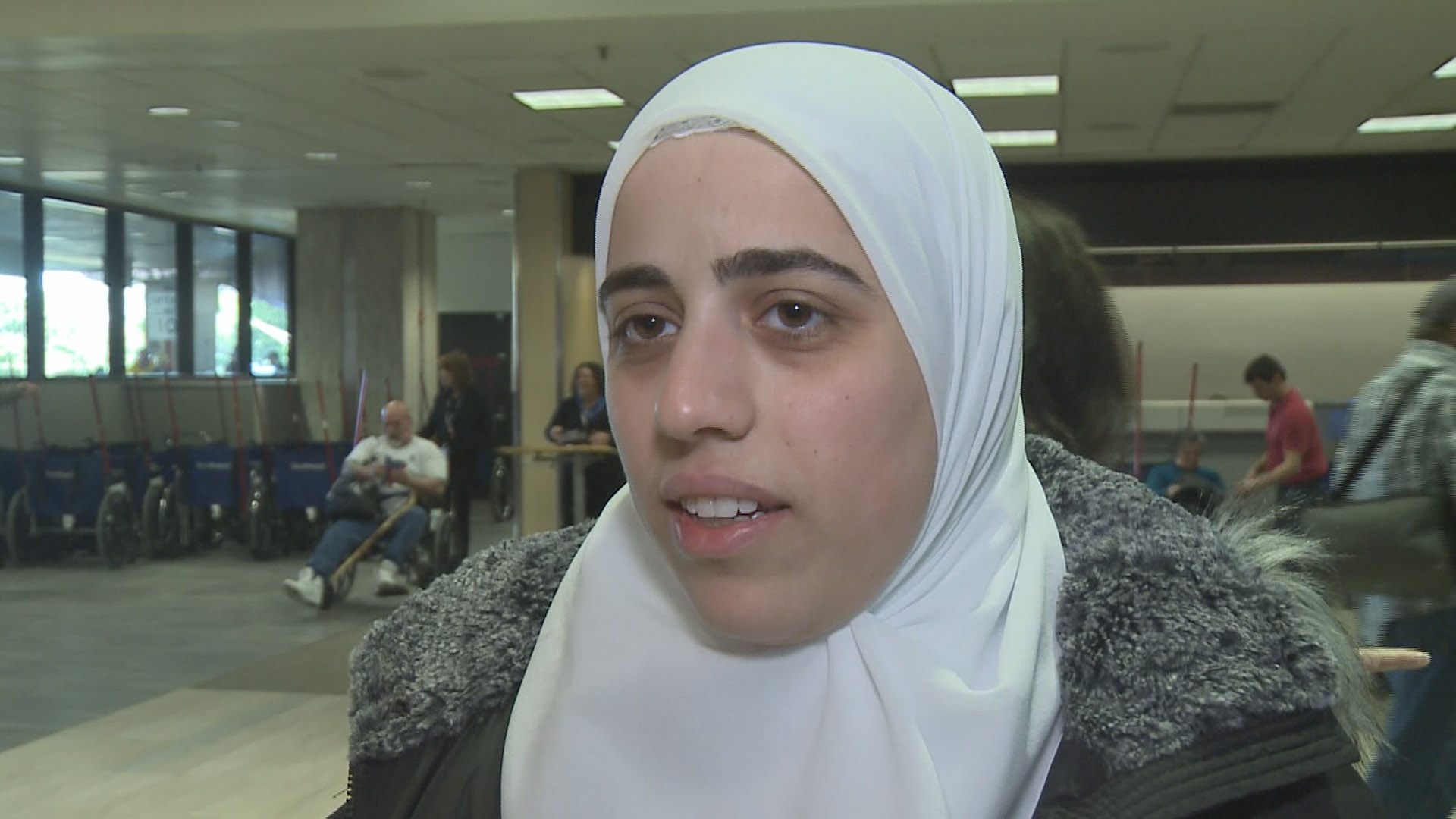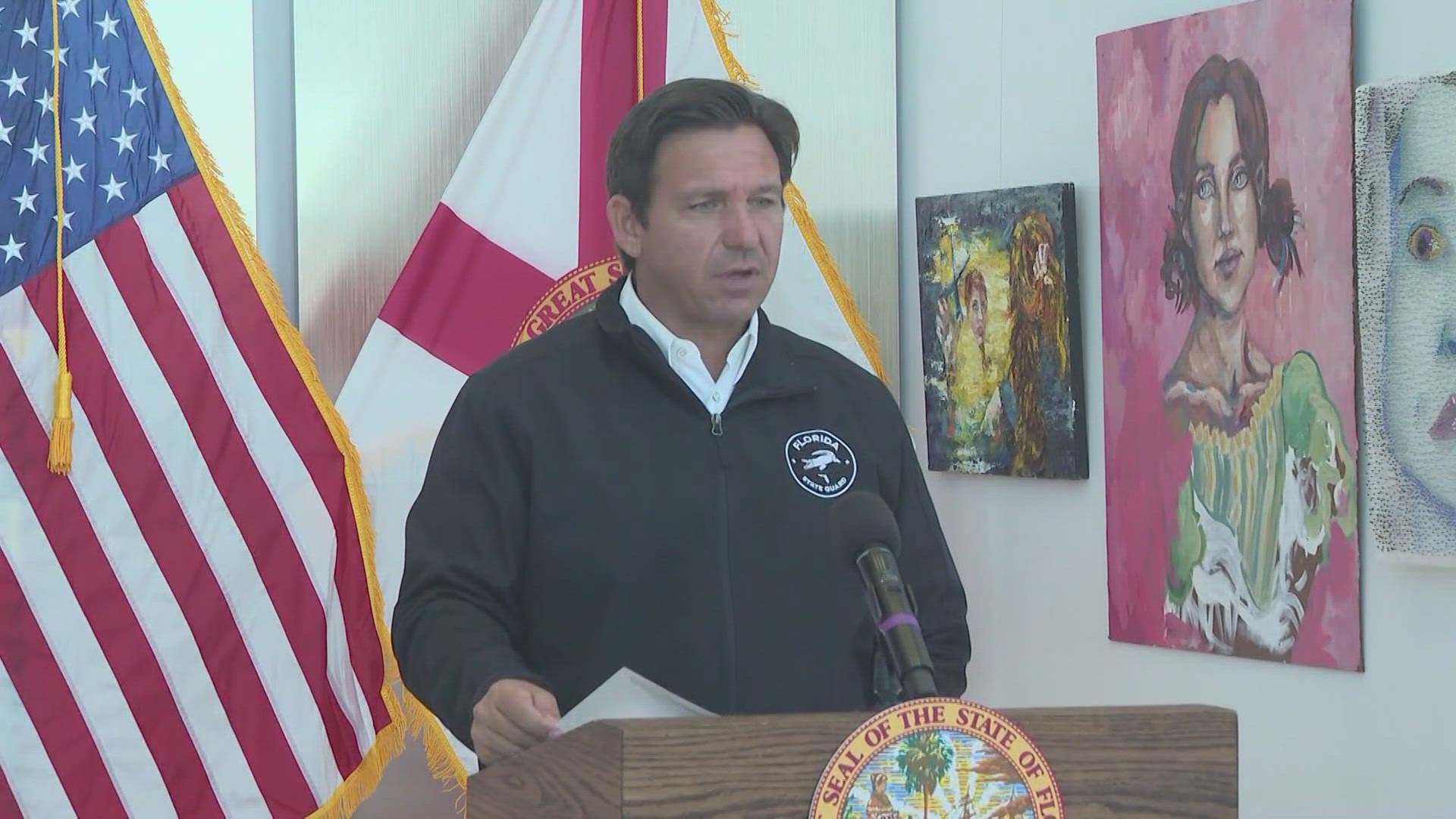Tampa, Fla. -- Muslim civil rights groups say enough is enough, and now some are even urging U.S. citizens of Muslim faith to refuse to answer secondary inspection questions at U.S. airports.
“I have a right to be treated just like everybody else,” said Reem Shukairy, boarding a flight with her children Tuesday at Tampa International Airport.
Shukairy is an American Muslim citizen. The hijab which covers her head, she believes, has made her a target for unnecessary searches and secondary questioning in the past.
“It's uncomfortable, but you just kind of go with it -- because you are, you know, like I said, I don't have anything to hide,” she said. “So, if they want to do a special screening of me, unfortunately, I have to go through it.”
No, you don’t have to, say Muslim civil rights organizations, including Florida's Council on American-Islamic Relations.
On the same day, CAIR’s Executive Director Hassan Shibly joined a federal lawsuit challenging the new White House Immigration rules, CAIR also called upon Muslim-Americans to refuse secondary questioning at U.S. ports of entry.
Shibly accuses U.S. Customs and Border Protection agents of essentially putting together a Muslim registry by disproportionately pulling Muslim-Americans aside for enhanced screenings and secondary lines of question.
“Absolutely, it's a way to push back,” said Shibly, “To say that we will not allow our rights to be tread upon. And will not allow our government to engage in discriminatory treatment of people based upon the religion. That doesn't make our country safer.”
CAIR’s list of advice for U.S. citizens includes these steps:
-- Ask for a supervisor and tell them you have verified your identity.
-- Refuse to answer questions about religious beliefs or topics protected by the First Amendment.
-- Inform a supervisor you believe you're being religiously profiled.
-- Demand to speak with a lawyer or be immediately released.
“Whether you wait an hour or four hours, remain silent until they let you out. And then contact CAIR, and we will hold officers accountable,” said Shibly.
We wanted to know from Muslim American travelers whether they thought that the call from CAIR was practical, since standing their ground could create more issues and perhaps mean missing a flight.
“We're all American citizens. We shouldn't be questioned extra just because we have a different face,” said Ayat Shukairy, traveling with two children Tuesday.
Shukairy her decision might depend on whether she was traveling alone or had her children are with her. But overall she agrees with CAIR's stance.
“Because, again, it's about setting up for our civil liberties,” she said.
CAIR was quick to point out its advice does not apply to non-U.S. citizens.
But for Americans who feel they've been singled out for their religion, it's time, they say, to speak up.
“It's profiling, it's not right,” said Shukairy, “And again, that's why I would take that stance.”


